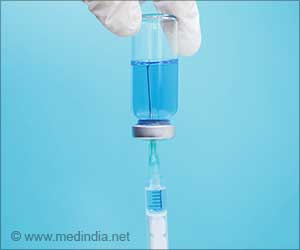It is commonly thought that an incomplete course of antibiotics increases the risk of a renewed infection by a 'superbug' that can mount a more powerful defence against the same drug.
It is commonly thought that an incomplete course of antibiotics increases the risk of a renewed infection by a 'superbug' that can mount a more powerful defence against the same drug. But a new study indicates that treating bacteria with levels of antibiotics insufficient to kill them produces germs that are cross-resistant to a wide range of antibiotics.
The new research led by Boston University Professor James J. Collins details for the first time the biomolecular process that produces superbugs.When administered in lethal levels, antibiotics trigger a fatal chain reaction within the bacteria that shreds the cell's DNA.
But, when the level of antibiotic is less than lethal the same reaction causes DNA mutations that are not only survivable, but actually protect the bacteria from numerous antibiotics beyond the one it was exposed to.
"In effect, what doesn't kill them makes them stronger. These findings drive home the need for tighter regulations on the use of antibiotics, especially in agriculture; for doctors to be more disciplined in their prescription of antibiotics; and for patients to be more disciplined in following their prescriptions," said Collins.
Two years back, Collins - together with graduate student Michael Kohanski and post-doctoral fellow Mark DePristo - proved that when applied in lethal doses, antibiotics stimulate the production of reactive oxygen species (ROS) molecules, or free radicals that damage DNA, protein and lipids in bacterial cells, contributing to their demise.
In the new study, the same researchers demonstrated that the free radicals produced by a sub-lethal dose of an antibiotic accelerate mutations that protect against a variety of antibiotics other than the administered drug.
Advertisement
"We arrived at the hypothesis that sub-lethal levels of antibiotics could bump up the mutation rate via the production of free radicals, and lead to the dramatic emergence of multi-drug resistance," Collins added.
Advertisement
Source-ANI
SAV















